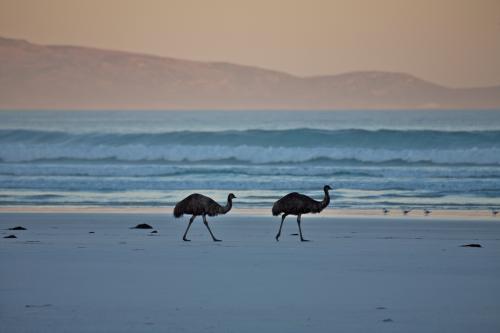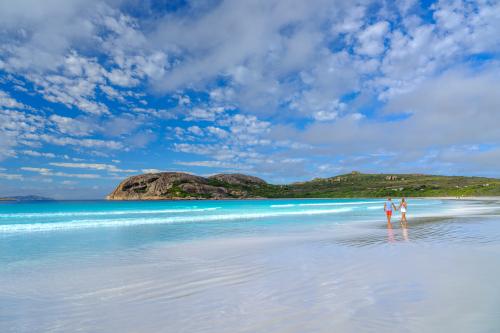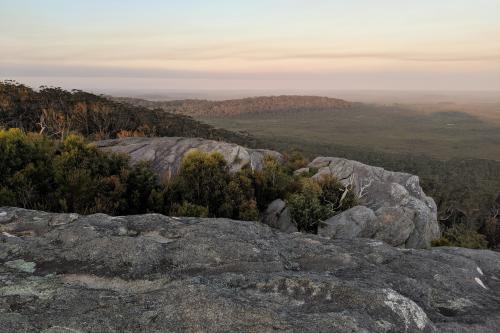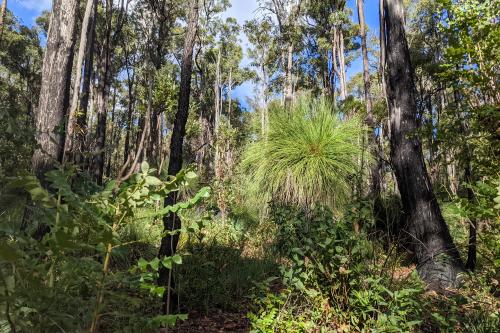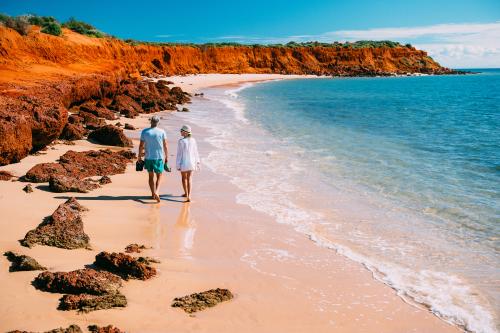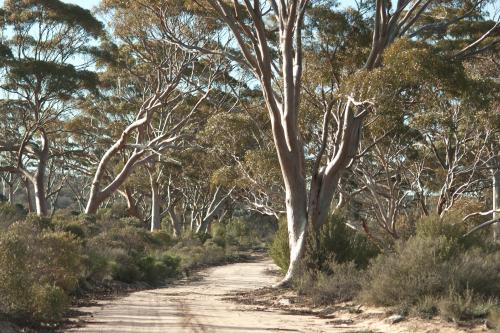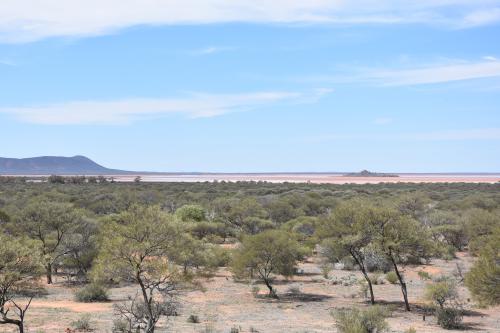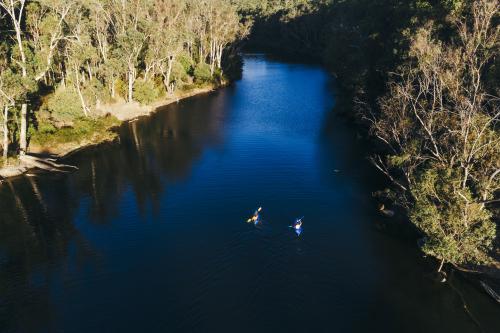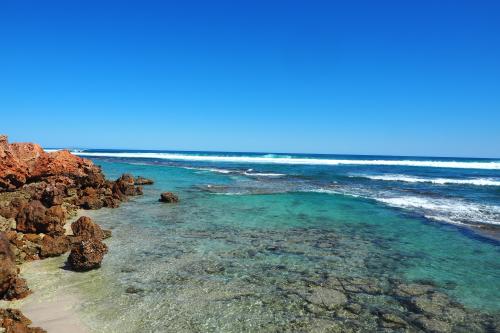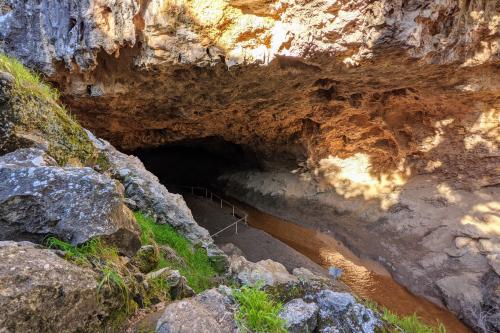There are many thousands of kilometres of unsealed, sand, gravel and rocky roads and tracks in national parks that should not be ridden or driven with regular road vehicles. Exploring in a four-wheel drive vehicle or on an adventure motorcycle can open up lots of places to you.
You must stay on designated roads and tracks and not find your own way. Vehicles are not permitted on walking or cycling tracks. All of Western Australia's road and traffic laws apply, the vehicle and the driver or rider must be licensed and the vehicle must be roadworthy. Details are available from the Department of Transport. You can find information about four-wheel drive and motorbike trails at Trails WA.
Designated off-road vehicle areas are the only places you can ride or drive if you do not have a driver’s licence or vehicle road registration. Your off-road vehicle must be registered with the Department of Transport. DBCA (Department of Biodiversity Conservation and Attractions) works with the Recreational Trailbike Riders Association of WA on these areas. See their website for more details and for other similar facilities throughout the state. For information and maps of permitted areas visit Department of Local Government, Sport and Cultural Industries.
One of the biggest environmental issues in the south-west corner of Western Australia is dieback (Phytophthora cinnamomi) which is destroying native plants and threatening species with extinction. Vehicles can easily carry dieback. To avoid contributing to its spread, always thoroughly clean your vehicle, especially the tyres, wheels and underside, before entering and after leaving parks. To lessen the spread of dieback it is sometimes necessary for park roads and tracks to be closed to vehicles. Check Park alerts before your trip for road and track closures.
There are other environmental and safety reasons for park roads to be closed including Department of Water and Environment Regulation restrictions for the protection of public drinking water supplies. Some maps, particularly older editions, may show tracks without indicating that they are closed. Closed roads and tracks will be signed.
Special considerations apply for travelling in coastal national parks and on beaches. The Code Off Road brochure, by Track Care WA, provides a guide to safe and responsible driving in these fragile and potentially hazardous areas.
Always follow the seven principles of Leave No Trace to minimise your impact on the natural and cultural heritage of the areas you are visiting.
Safe travel begins with research and preparation. When planning to travel to remote areas or places where a four-wheel drive vehicle is recommended, you should understand what type of vehicle and auxiliary equipment is needed, what level of experience is necessary and what conditions you are likely to encounter in the areas you travel through. Some of this information is available in a number of specialist road atlases. Make sure that your copy is a current edition and remember that the authors are responsible for the content.
In addition to learning the driving, riding and navigation skills needed for these roads and tracks, you need to be equipped and capable of, vehicle recovery and repair, and bush and outback survival. These are all specialist skills that require specialist training. Be prepared to invest in training and attempt trips and expeditions appropriate to your experience and the experience of your group. Always travel in groups of at least three vehicles. For more information see Safety and Travelling in remote locations.
Commercial tours offer four-wheel drive experiences in national parks. A range of tour types are available where you can either travel in the operator’s vehicle or ‘tag-along’ with your own vehicle in a convoy with other tour participants.
There are many clubs that offer benefits such as the skill and knowledge of experienced members, club equipment, social events, group tours, opportunity to contribute to track classification and maintenance.
The peak four-wheel drive bodies are the Western Australian Four Wheel Drive Association and Track Care WA. Their websites include information about their activities as well as links to various training providers. For information about adventure motorcycling, go to the Recreational Trailbike Riders Association of WA.
